









| Atlantic Ghost Crab (Ocypode quadrata (Fabricius, 1787)) |










|
|
Scientific name: Ocypode quadrata (Fabricius, 1787) Common name: Atlantic Ghost Crab French name: Crabe fantôme atlantique, Crabe mal Zoreille Order: Decapoda Family: Ocypodidae Size: 5cm. Habitat : Sandy beaches bordering the ocean. They live inside burrows which can be 1.3 metres deep and located as far as 400 metres from water. Ocypode quadrata is a terrestrial species but needs to regularly wet its gills. Food: Omnivorous. It feeds on molluscs, insects, plants, detritus and sometimes other crabs. Reproduction : Females go to water to lay the eggs. Larvae come back to the sand edge after 4 to 6 weeks. Geographic area: American Atlantic coasts from Rhode Island in the United States to Santa Catarina in southern Brazil. The Caribbean. |
The Ocypodidae is a family of semi-terrestrial crabs living on the sea coasts of tropical and temperate regions. It includes Fiddler Crabs, Ghost Crabs (Ocypode genus) and Mangrove Crabs (Ucides genus). The Ghost Crabs get their names by the fact that they can almost instantaneously disappear by walking very fast and by quickly hiding inside their burrows. All the different species have one claw larger than the other. The Atlantic Ghost Crab is a greyish white or yellowish colour. Young crabs are spotted for better camouflage on the sand. The eyes are positioned on mobile stalks then allowing a 360 degrees vision. The Atlantic Ghost Crab is mainly active during the night so that he is protected against bird attacks. |
| [To know more about the Atlantic Ghost Crab] [Next picture] [Top] |

|
We have really enjoyed staying perfectly immobile on the beach to see Atlantic Ghost Crabs coming a going. They instantaneously went beck to their burrows as soon as we did a small movement. |
| [To know more about the Atlantic Ghost Crab] [Next picture] [Previous picture] [Top] |

|
This one, a little worried, has stayed next to the opening of its burrow. |
| [To know more about the Atlantic Ghost Crab] [Next picture] [Previous picture] [Top] |
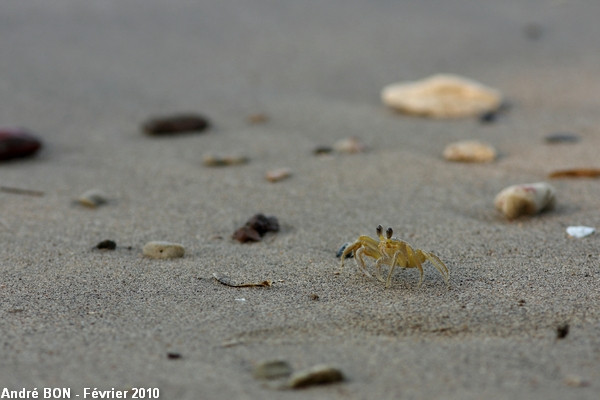
|
Other ones, more courageous, have walked further on the beach. I have only observed burrows very close to water. There were many of them with about one metre between each. |
| [To know more about the Atlantic Ghost Crab] [Next picture] [Previous picture] [Top] |
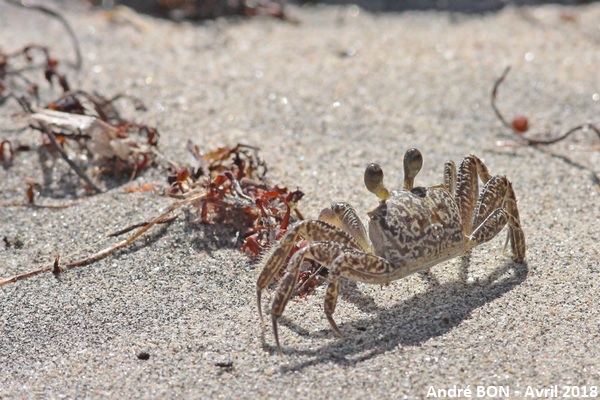
|
This speckled specimen indicates a juvenile. |
| [To know more about the Atlantic Ghost Crab] [Next picture] [Previous picture] [Top] |
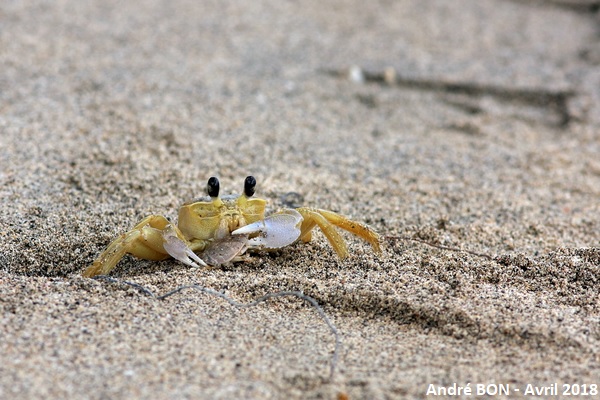
|
Here is an Atlantic Ghost Crab during its meal, but in the immediate vicinity of its burrow to disappear at the slightest danger. |
| [To know more about the Atlantic Ghost Crab] [Next picture] [Previous picture] [Top] |
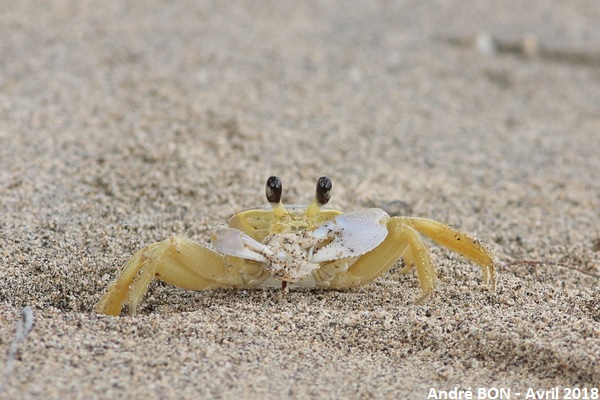
|
Same comment as for the previous picture. |
| [To know more about the Atlantic Ghost Crab] [Next picture] [Previous picture] [Top] |
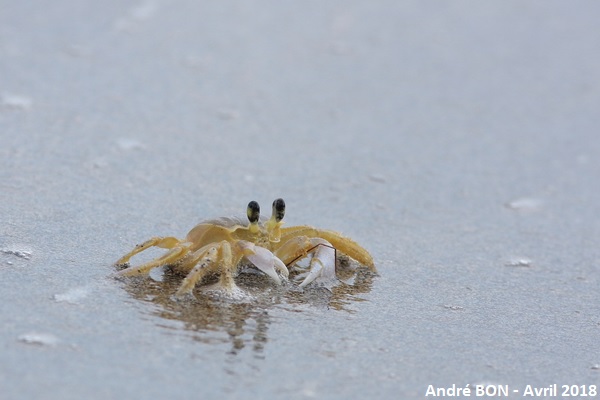
|
Here is a sighting with feet in the water, which I haven't seen often at all. |
| [To know more about the Atlantic Ghost Crab] [Next picture] [Previous picture] [Top] |
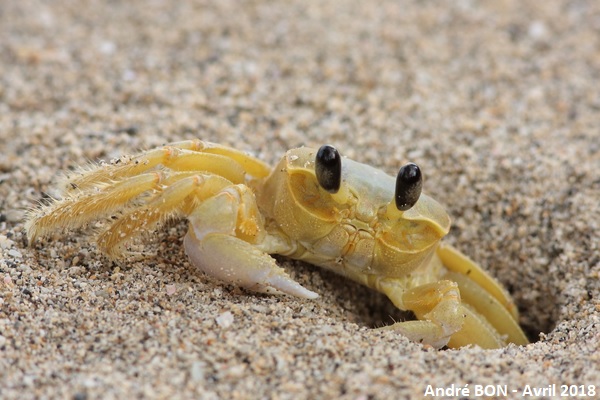
|
Close-up at the entrance of the burrow. |
| [To know more about the Atlantic Ghost Crab] [Next picture] [Previous picture] [Top] |
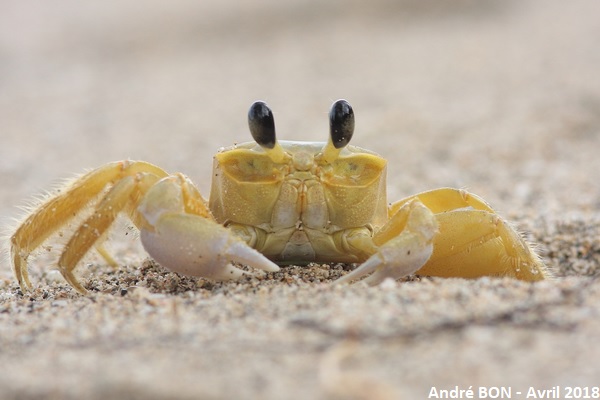
|
Another close-up view. |
| [To know more about the Atlantic Ghost Crab] [Previous picture] [Top] |
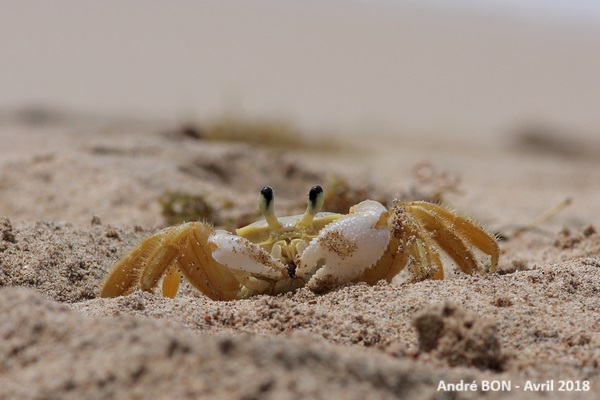
|
We never tire of taking photos of these little crabs… |